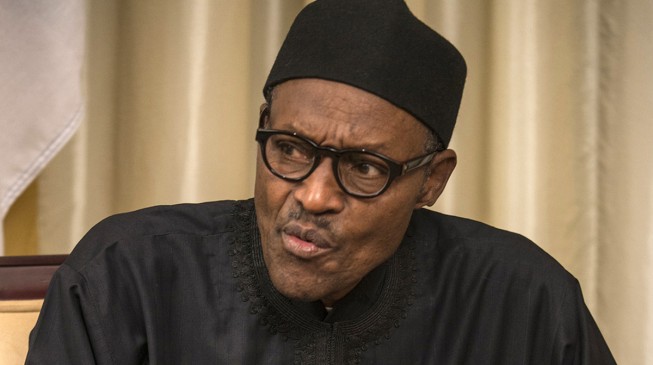
THE
Federal Government has exonerated the teacer, Mr. Olaseni Osifala, from
allegation of sexual molestation of a junior secondary school II
student of Queen’s College, Yaba, Lagos.
Minister of State for Education, Professor Anthony Anwukah, briefed
newsmen on Friday, in Abuja, on the outcome of the investigation panel
into the allegation of sexual molestation and cover up by the management
of the College.
He said the Investigation Committee did not establish any credible
evidence against the accused teacher, considering the fact that Mrs.
Chinenye Okoye remained unidentified, faceless and inaccessible despite
the Committee’s best efforts and assurances to protect her identity and
that of her daughter.
Consequently, the Investigation Committee finds it difficult to
recommend disciplinary action against the accused teacher as the
complainant failed to come forward to prove this weighty accusation.
It would be recalled that the Federal Government, on 22nd of March,
2016, set up a seven-Man Investigation Committee to look into the
allegation of sexual molestation of a junior secondary school II student
of Queen’s College, Yaba, Lagos.
Anwukah, said this step became necessary following several reports
from the conventional and social media networks, alleging that, a
teacher of the College, Mr. Olaseni Osifala, had molested one Miss
Okoye, a student of the College.
The allegation was supposedly made by the girl’s mother, one Mrs. Chinenye Okoye.
The Minister said when the panel was set up government deliberately kept
the identity of the Committee members confidential, as a result of the
sensitive nature of the assignment, as well as the need to avoid undue
pressure and interference on the Committee members.
The committee which has the Director, Internal Audit, Federal
Ministry of Education, Mr. Paul Boyo as chairman, has Mrs. Olusola-Dada
O.T., (Deputy Director Human Resources), Mrs. Itodo Elizabeth, (Deputy
Director, Basic & Secondary Education), Mr. Amudipe Gabriel Olu,
(Assistant Director, Education, Support Services), Mrs. Gbola Awopetu
Yewande, (Assistant Legal Adviser), Mr. Allred Olufunwa, (Department of
State Services), and Mrs. Olayiwola Suliat, (Assistant Director Basic
and Secondary Education) as Secretary.
The Committee had the following terms of reference including
ascertaining the veracity of the allegation and existence of any
unprofessional behaviour on the part of the teacher.
They were also to determine if there were any male staff member
living within the proximity of the hostel who could pose a threat to the
students and to examine the remote and immediate causes of the
students’ protest action that followed.
The panel was also mandated to recommend steps towards preventing
sexual molestation of students in all Federal Government Colleges as
well as recommend sanctions against anyone found culpable.
The Minister disclosed that in the course of its assignment, the
Committee called for memoranda from the principal, the Queens College
Old Girls Association, the Parents Teachers Association, the concerned
mother (Mrs. Chinenye Okoye), Mr. Osifala (the accused teacher),
teachers and members of staff of the college, Students’ Representative
Council, the School-Based-Management Committee and the general public.
He added that the Committee also took oral evidence from relevant stakeholders.
He said: ” When we received the report of the Committee on Monday
25th April 2016, again we set up a 5-man Committee to study the report
and prepare a draft White Paper.
“Members of this committee are: Mr. Lawrence Ogundana -Chairman,
(Director, Library Services); Mrs. Justina Ngozi Ibe, member; (Director,
Education Support Services) Mrs. Gbemi Ajibade, member; (Director Legal
Services), Prof. Godswill Obioma-member; (Special Assistant (Technical)
to the Honourable Minister of State for Education)
Mr. Adebayo Odejinmi – Member/Secretary; and (Deputy Director, Office of the Permanent Secretary).
“We are pleased to address this Press Conference today (Fruday), in
order to share with you, as well as students, teachers, parents,
relevant stakeholders and indeed the general public, the recommendations
of the Investigation Committee, and Government’s position on all issues
relating to the allegation.
“Summary of Recommendations of the Investigation Committee. The
Investigation Committee did not establish any credible evidence against
the accused teacher, considering the fact that Mrs. Chinenye Okoye
remained unidentified, faceless and inaccessible despite the Committee’s
best efforts and assurances to protect her identity and that of her
daughter.
“Consequently, the Investigation Committee finds it difficult to
recommend disciplinary action against the accused teacher as the
complainant failed to come forward to prove this weighty accusation.
“From the various interactions held with the past Principals of the
College and the current Management of the College, the Committee
observed that the College had zero tolerance for such vices as sexual
molestations, as prompt actions were always taken in the past cases of
alleged inappropriate behaviour or sexual molestation by Staff.
“Therefore, the Committee could not establish any cover up of Sexual
Molestation by the Management of Queens College as alleged in Mr.
Osifala’s case.
“Furthermore, anyone with information that can lead to identifying
the alleged victim or her mother or with any credible and substantiated
evidence that was not earlier made available to the Investigation
Committee during their sittings on the allegation against the teacher
can still approach the Ministry accordingly.
“Government position: the Federal Ministry of Education notes and
accepts all the recommendations of the Committee and will take actions
as appropriate,” he stated.
TheElites

